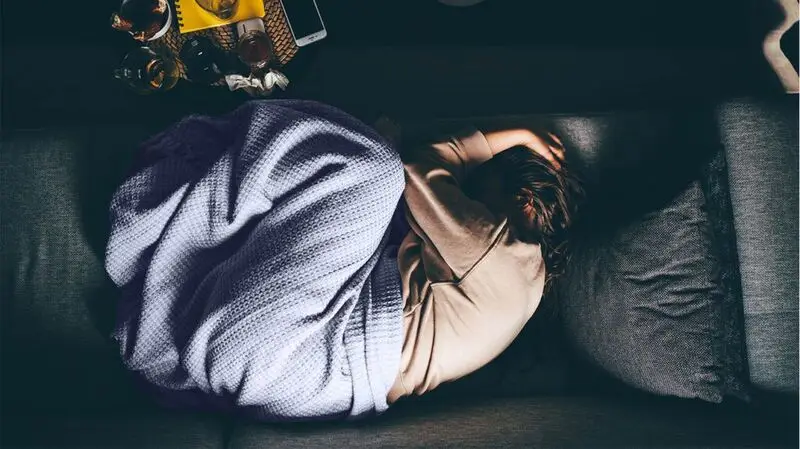
- Sleep quality and duration is closely linked to physical and mental health.
- Adults should aim to get 7–9 hours’ sleep a night, which can be a challenge, particularly as we get older.
- To compensate, many people nap during the day, but new research suggests that this may not be beneficial.
- A study has found a link between daytime napping and increased risk of all-cause mortality in middle-aged and older adults.
- The researchers suggest that napping may be an indicator of underlying health issues, rather than directly causing mortality, although their observational study cannot prove this.
The
Getting sufficient sleep can lower a person’s risk of developing a number of Health conditions, including type 2 diabetes,
As people age, getting a good night’s sleep can become more difficult, leading to daytime napping to make up for lost night time slumbers. However, a new study in middle-aged and older adults suggests that daytime napping, particularly around the middle of the day, is linked to a higher risk of death from any cause.
The study, which was presented at Sleep 2025 — the 39th Annual Meeting of the Associated Professional Sleep Societies (APSS), held in Seattle, WA, between June 8–11 — cannot prove a causative link but suggests that further research is needed into links between daytime napping and health.
An abstract of the study is available in Sleep, the journal of the Sleep Research Society, though its full results are yet to be published in a peer-reviewed journal.
Emer MacSweeney, MD, CEO and consultant neuroradiologist at Re:Cognition Health, who was not involved in this study, told Medical News Today that:
“These findings are significant because they suggest that daytime napping patterns could serve as early markers of declining Health or disrupted sleep architecture in older adults. While previous research has focused on nighttime sleep duration and quality, this study expands the scope by identifying the timing, length and variability of naps as potential indicators of all-cause mortality risk. […] the findings underscore the importance of viewing sleep as a 24-hour cycle, where daytime behaviours are just as telling as those during the night.”
The study used data from 86,565 participants in the UK Biobank. At the start, participants had a mean age of 63 years, 57% were female, and none had a history of shift work.
All participants completed 7 days of actigraphy monitoring — continuous wearing of a wristwatch-like device that tracks activity to monitor sleeping and waking times. The researchers used this data to identify frequency, timing and duration of daytime naps.
They recorded mean nap duration between 9 am and 7 pm, variability in nap duration for each individual across days, and timing of naps within the 2-hour time windows of 9–11 am, 11 am–1 pm, 1–3 pm, 3–5 pm, and 5–7 pm.
After adjusting for demographics, body mass index (
Median nap duration for all participants was 0.40 hours, with a variation in nap length of 0.39 hours for each individual. People took the most naps between 9 and 11 am (34%), with 10% between 11 and 1, 14% between 1 and 3 pm, 19% between 3 and 5 pm, and 22% between 5 and 7 pm.
During the 8-year follow-up, 2,950 participants died (3.4% of the total). For those who died, mean survival from the start was 4.19 years.
The researchers found that those who died during follow up took longer naps, had more variation in their nap times, and were more likely to nap between 11 am and 3 pm.
MacSweeney commented that: “This study is a reminder that napping is not inherently negative, but changes in napping behaviour, particularly longer and irregular naps, can signal evolving health concerns. It reinforces the need for clinicians to ask about daytime sleep as part of a routine assessment, especially in older adults.”
“It also opens the door to further research into the neurobiological and physiological changes that may link daytime sleep patterns to mortality, particularly in relation to early-stage dementia, inflammation, or metabolic instability,” she told MNT.
Another recent study suggests that excessive daytime napping is linked to a higher risk of dementia.
However, these, as well as the latest study, are observational, so cannot show a causative link.
Kanwar Kelley, MD, JD, triple-board-certified in Otolaryngology Head & Neck Surgery (ENT), Obesity Medicine, and Lifestyle Medicine, and co-founder and CEO of Side Health, who was not involved in the current research, agreed that the study cannot establish causation.
Kelley explained why there might be an association between daytime naps and higher mortality:
“This may be because individuals with higher comorbid conditions are more likely to experience lower energy levels during the day or require naps. Alternatively, naps may be more frequently needed for those who are not getting enough sleep at night, which can lead to an increase in co-morbid conditions. Further research will be necessary to identify stronger associations between sleep and mortality.”
MacSweeney agreed, noting that, “[g]iven the observational design of the study, it is more plausible that excessive or irregular napping is a symptom rather than a cause of underlying health conditions.“
“In this context,“ she told us, “excessive napping likely functions as a clinical red flag rather than a direct contributor to mortality.”
There are several measures you can take to try and get a better night’s sleep, so that you are less likely to need those daytime naps.
MacSweeney recommended the following evidence-based strategies:
- establishing a consistent sleep schedule, even on weekends
- limiting caffeine and alcohol, especially in the evening
- creating a calming bedtime routine, free from screens and overstimulation
- increasing daytime exposure to natural light to strengthen circadian rhythms
- managing medical conditions such as pain, heart failure or respiratory issues that may disrupt sleep
- treating underlying sleep disorders like sleep apnea or restless legs syndrome
- exercising regularly, but avoiding vigorous activity close to bedtime.
She cautioned that, “[i]f excessive sleepiness persists despite good sleep hygiene, a clinical sleep assessment is recommended.”
“[The new] study is essential to remind medical workers to ask patients and caretakers about individuals’ sleep and their quality of sleep. Establishing good sleep habits may help you maintain Healthier, longer sleep.”
– Kanwar Kelley, MD, JD





